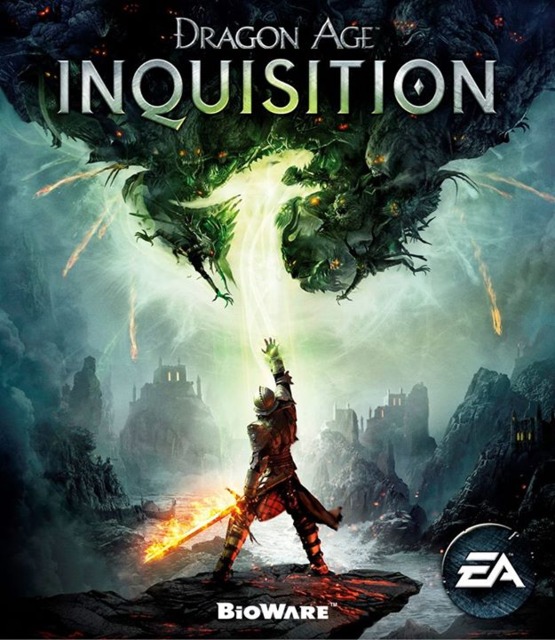Dragon Age: Inquisition
The third installment in Bioware’s epic dark fantasy series brings with it some much needed changes and promising starts that sadly don’t follow through.
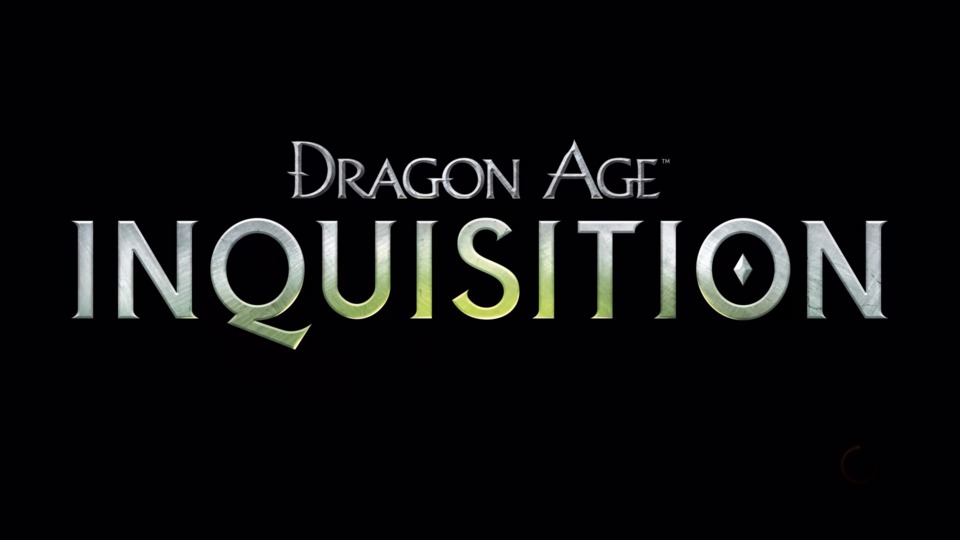
As I was finishing Dragon Age: Inquisition a thought popped in my head, this is a game Bioware needed to make. Not for financial or contractual reasons, but for creative ones. After the release of their last three games there seemed to be some serious resentment building towards the iconic developer. Dragon Age 2 was seen as a rushed product and considered the most mediocre game they have ever made; Mass Effect 3 originally ended the mega popular series in disappointing fashion that even numerous DLC and a whole new ending couldn’t save. And then there’s Star Wars: The Old Republic. The developer’s first foray into the MMORPG genre was seen cynically by many as an attempt to cash in on a market ruled over by Blizzard’s juggernaut, World of Warcraft, and despite a very strong first month the game quickly lost steam as the lack of end game content caused it to go free-to-play. Added to all this was the mass exodus of Bioware’s lead personnel, founders doctors Ray Muzyka and Greg Zeschuk both retired in 2012 and Mass Effect director Casey Hudson leaving in 2014. That brings us to now with the first game released in what we can ostensibly call the “new” Bioware. Inquisition is a game Bioware needed to make, because it feels like the kind of game only they could have; it’s just a shame that didn’t equate to a more satisfying experience.
The story opens with a large temple being destroyed by what looks like a magical explosion. After this you go to the character creator and pick your avatar. An feature that was in Dragon Age: Origins but was taken out of the sequel was the ability to make your character a member of different races, thankfully Bioware brought back this feature and added the popular qunari race to the selection process.Your finished character then gets chased in unknown location before mysteriously showing up in the temple ruins. You then find yourself locked up and being interrogated by returning characters, Origins’s Leliana and Dragon Age 2’s Cassandra, and they believe you know what caused the explosion that now also seems to have opened a giant tear in the sky that is causing demons to appear in the world and has left you with a strange power glowing from your right hand. After some tutorials, meeting up with other party members, making your first pathing choice, defeating a pride demon boss, and using your new found power to close a demonic rift you wake up in the game’s first central hub of the small village of Haven. It’s there where you witness the birth of the titular Inquisition with you as one of it’s founding member that eventually gets the title of Grand Inquisitor.
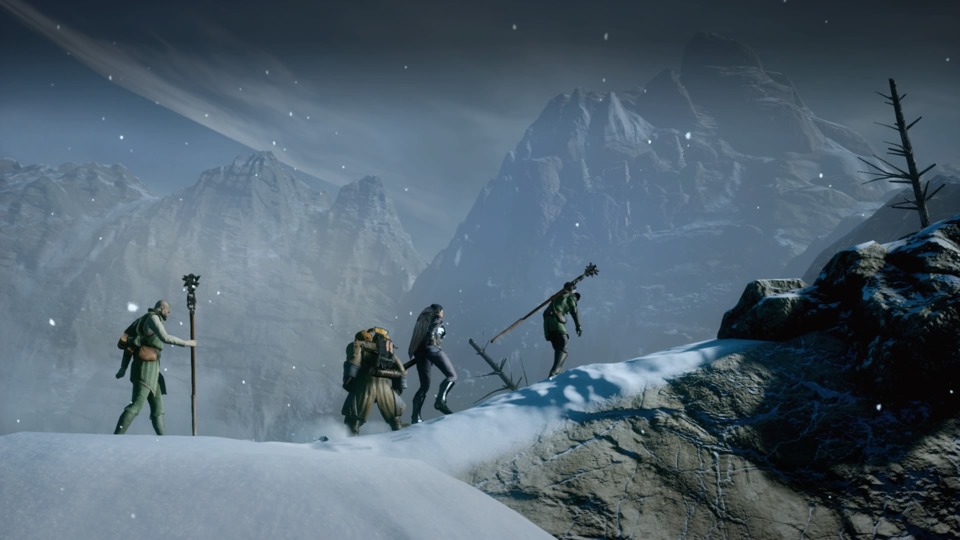
After such a fantastic start you’d think the overall plot would be able to carry that momentum, but sadly Inquisition never reaches that high for most of the entire story. It’s never bad but never reaches it’s full potential that can clearly be seen, the plot just wavers there straddling between “okay” to “huh, that’s interesting”. They could’ve told a story that was new and fresh but instead just deliver another end-of-the-world scenario that even Bioware themselves have done better in other games. That is not to say the game doesn’t have it’s share of great moments peppered throughout. The giant act-ending set piece missions feature some of the best writing in the series to date with some exceptionally good twists on what one would think of as classic fantasy. However, these genre-bending turns are still forced to work in a construct that is dull and trite and feel like the bad hampering the good more than the good lifting up the bad. While it’s clear the story is nothing to write home about it’s obvious the developer’s priorities were focused elsewhere.
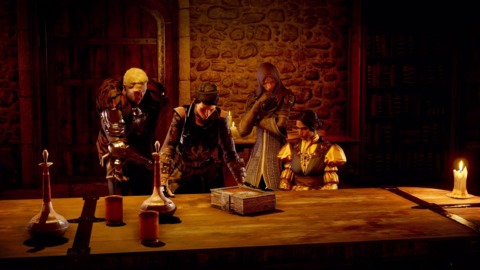
I have always stuck to the opinion that any large RPG epic is only as good as it’s cast of characters, from the bit players to supporting cast to the major and minor antagonists. It’s here where Bioware has struck gold with not just making some good characters but some very genuinely compelling personalities with their own dreams, loves, hates, fears, and interesting backstories. Their all so well written and characterized that it’s hard to imagine anyone coming away this game and not having stand out favorite. From Iron Bull a warrior who loves fighting and fornicating as much as he cares for the soldiers that risk their lives for him, to Sera the rogue who is happier pantsing nobles than to dealing with anything world threatening, and to Dorian the mage who uses his sardonic wit and smuggish anti-hero facade to mask his own insecurities. While these are just some examples it does speak volumes that there are just so many companions, each one with their own richly defined character and that not a single one of them I wouldn’t mind following in their own stand alone adventure. This craftsmanship in well developed characters also goes for Inquisition’s villains, with Bioware not just being content with the mustache twirlers of yore instead making them feel like real people whose alignment of what is right and wrong just happen to be askew from what you consider the norm. The only real exception to this being the big bad himself who goes by calling himself the Elder God. Again the game disappoints with having him feel like a trope villain with a trope plan for world domination; you eventually discover who he is and his motivation behind his plans but it’s a bit of a long while before you find that out.
The main bulk of the game comprises of entering these large separated game regions and completing various missions and fetch quests while also exploring the surrounding area. The size of these levels are massive, for example the first region, The Hinterlands, feels larger than most of the areas in the last two Dragon Age games combined. It’s really impressive just from the sheer size, but Inquisition’s amount of content to do is also something to be lauded for. From sealing fade rifts, solving constellation puzzles, collecting shards, gathering minerals, to killing mobs for specific side missions; you never feel like Bioware is short changing you or giving you nothing to do, but that comes with it’s drawbacks as well. I never felt motivated to continue finishing up side missions more than what was necessary, and there is a lot to do. After spending over a hundred hours I was left feeling like at least a third of the content could’ve been erased and you’ll had a much more lean enjoyable experience that didn’t have what feels like padding. But that is not to say it’s all worthless, for completing all these side missions you are awarded xp to level up your character and unlock new abilities for use in combat.
If you’ve played Dragon Age 2 the action feels largely the same with some much needed improvements, but for those of you haven’t let me go into more detail. You do basic attacks with the right trigger with pressing for precise strikes and holding for a continuous attack. Each weapon type feels different with daggers being the fastest and the best at attacking a single target, while large two-handed swords and mauls are incredibly slow but allow for hitting multiple targets with each swing. One-handed swords and shields are the most middle of the road with average attack speed and damage but are able to block to increase armor. Bows and Magic Staves don’t do much in terms of damage but are the only range weapons and are perfect for the less survivable members to keep away from the fray of battle. Spells and Abilities are assigned to the face buttons and they usually come in three forms, powerful attacks, buffs and debuffs, or movement enhancers; there so many abilities and sub-classes you can unlock that it makes sure everyone plays differently. And you should definitely try playing as your other companions because you will catch yourself falling in the trap of just playing as the Inquisitor but that can get extremely monotonous, especially for a game this long. The combat does feel good with all different flavors of each class coming together really nicely and feels like the best the series has ever played.
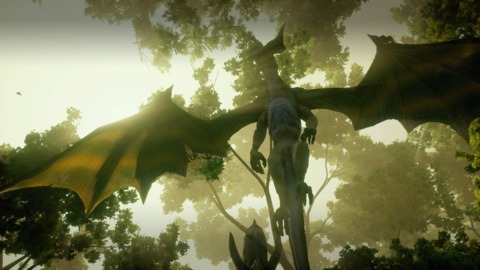
Dragon Age: Inquisition like it’s predecessors are games with tons of things to do and tons of systems to use. Bioware’s trademark conversation wheel returns continuing helping to give the Inquisitor some characterization while also helping moving the plot forward, and having you deciding the events that will change the future for the story and the world in general. Also new to the series is a whole new level progression system that tracks the influence of the Inquisition itself, by leveling that up you are able to unlock numerous passive upgrades that allow for benefits such as bonus xp, discounts in shops, increasing inventory and potion amount, and helping to decrease the cooldown of advisor missions, the other new aspect of the game. These missions see you using your diplomatic, stealthy, or military advisors to oversee minor side missions affecting Ferelden and Orlais that rewards weapons and items but also unlock more areas and start some of game’s bigger missions.
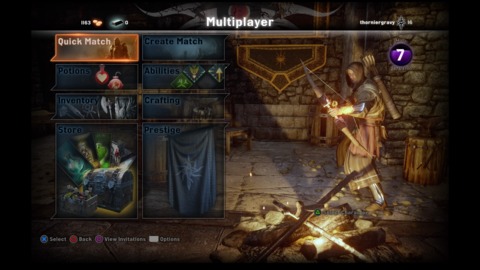
Crafting is featured in a big way with you being able to make weapons, armors, bombs, and potion upgrades pretty much from the start. It’s nice that the game gives that option but in my opinion felt completely unnecessary; I was always able get better gear from enemy drops or buy them from vendors than from crafting, and it wasn’t till halfway through the game that upgrading my health potions became a real concern. It felt like Bioware just added crafting to check off a box then to actually make this system useful or fun in any way, which is something I feared would be the case for my next talking point, multiplayer.
Yes that’s right the series most known for being large single player games has finally included multiplayer, specifically online co-op instances with the feeling of some of the game’s bigger missions. My first knee jerk reaction to this was me cynically thinking this was just a bolton on cash grab but the more I played the more I ended up enjoying it. The game setup is that you pick a class of warrior, rogue, or mage and then join up with other players to take on quest that is set during the campaign with you helping the Inquisition in some way. It’s a nice little narrative conceit that helps push an already fun experience, I was surprised at how much I’d enjoyed multiplayer from working with other players to finding materials to unlock new classes to play as, it was just solid from top to bottom. As I kept playing I began hoping that Bioware would find a way to integrate the multiplayer mechanics in new ways in future installments, the idea of one day to play an entire MMO styled raid using these mechanics has me excited. I can keep gushing about the multiplayer but it’s more out of surprise to have something that sounded like a such gimmick pulled off so well and be so much fun.
Graphics is also somewhere the team didn’t squelch on, with the use of fellow EA developer DICE’s Frostbite 3 engine making this the prettiest game Bioware has ever made. Character models look the sharpest they have ever looked and finally in this type of game your created character actually looks just as good as your supporting cast, who for the record all look great. Sweat, stubble, scars, facial ticks there all here turning every grouping of polygons into looking like real living breathing people. Environments get a great deal of polish as well with the architecture to the set dressing to weather and foliage all help in really bringing this virtual world to life. With the exception of some glitches, Inquisition runs perfectly with nigh a stutter or lag to be present and besides some long load times in spots the game really should be look at as one of the best showcase pieces for the current-gen hardware.
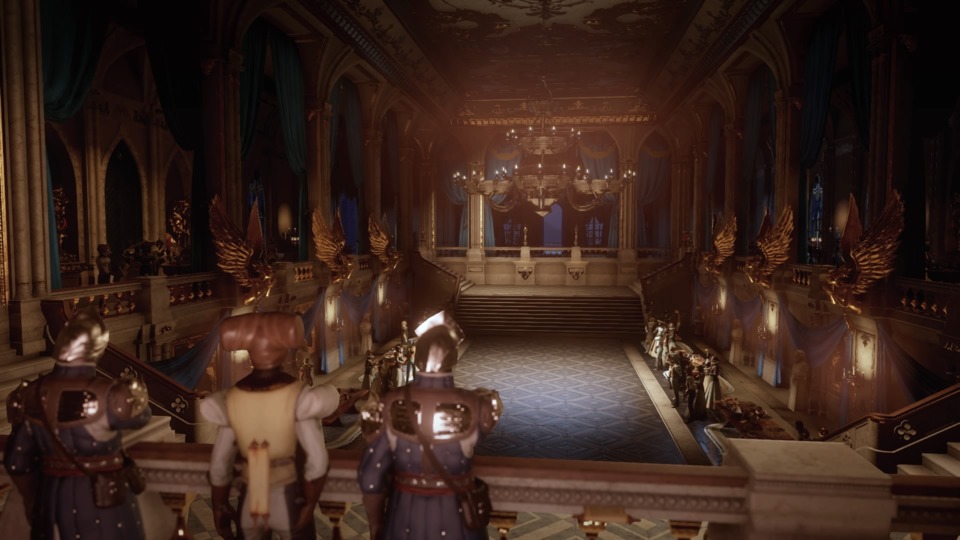
Inquisition’s sound department is working at full swing as well which isn’t really surprising considering the Dragon Age series have always been great in the audio department. The sweeping score is at it’s best with every part of the game really good making use of a full orchestra, you just feel like you’re in fantasy epic with triumphant horns, foreboding drums, angelic choruses, earthly flutes, and heartly chimes. Coupled with superb sound design with foot steps, weapon attacks, creature sounds, and weather effects like rain and lighting coming in crystal clear and helping to really set an atmosphere. The voice acting overall is well done with some stand outs being the hilarious Iron Bull (played by Freddie Prinze Jr.) and the pretty easy to hate mage Vivienne (played by Indira Varma) rounding out a pretty talented cast.
Dragon Age: Inquisition was a game I was hoping I can say was my favorite game of the last few years. That is was my favorite game of the series, but it’s not. It’s good game that is bogged down by too much uninteresting and shoddily executed ideas. There is a lot like in Inquisition with interesting moments, fantastic characters, and a beautiful look and sound but all that comes off as wasted when the rest of the game just so unnecessary. The real problem here is not just the excessive amount padding but the complete lack of communication from the developer that it’s padding first place. I mentioned the Hinterlands earlier in the review and for being the first big area there is a real problem of spending too much there overleveling and making the rest of the game too easy, but nowhere does Bioware step in and say hey don’t spend too much time here. There is absolutely a right way to play this game but the fact is no one playing for the first time will know that, so you have so many players left with frustration and boredom with a game that has the potential to be so damn good, but that’s all it is...potential.
I said in the beginning of this review that Dragon Age: Inquisition is a game Bioware needed to make, and I stand by that statement by the fact that without the leadership they have had in the past they were able to release a pretty decent product. But that’s not enough to be pretty decent, especially with other games that are doing grandiose RPGs better than them.
